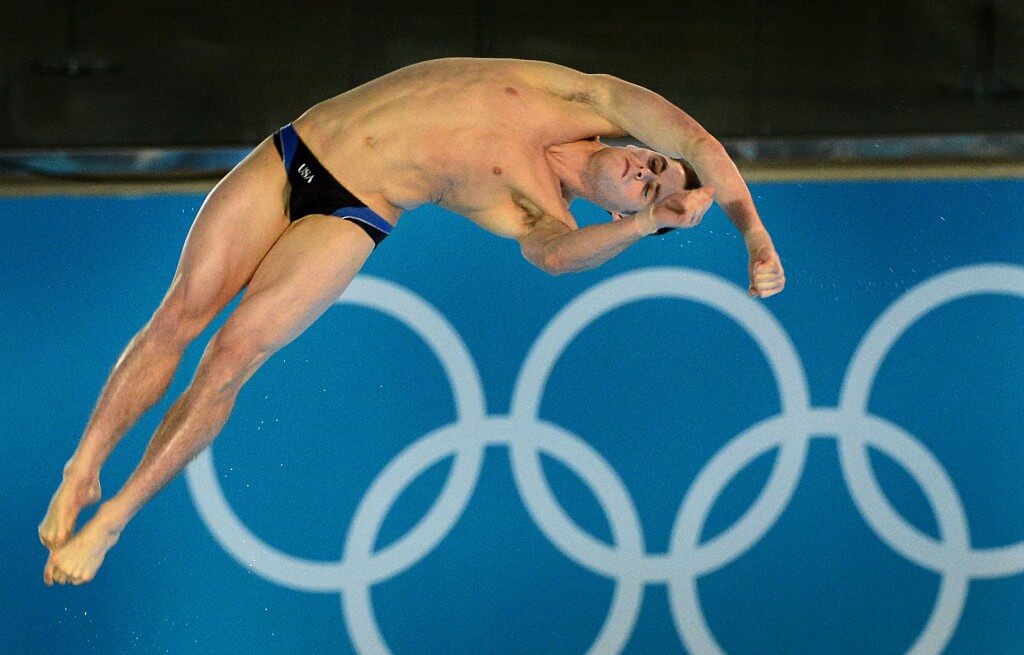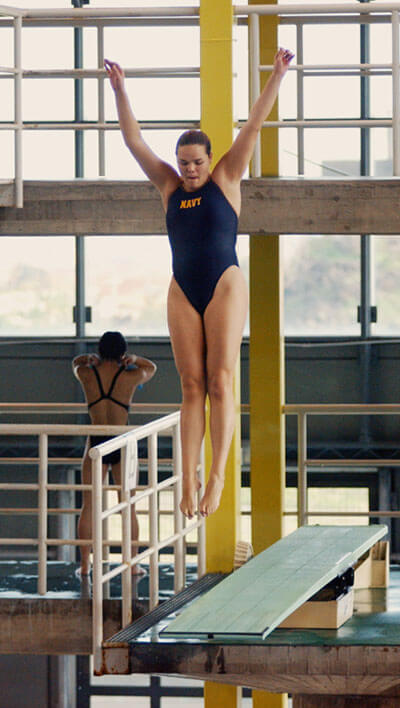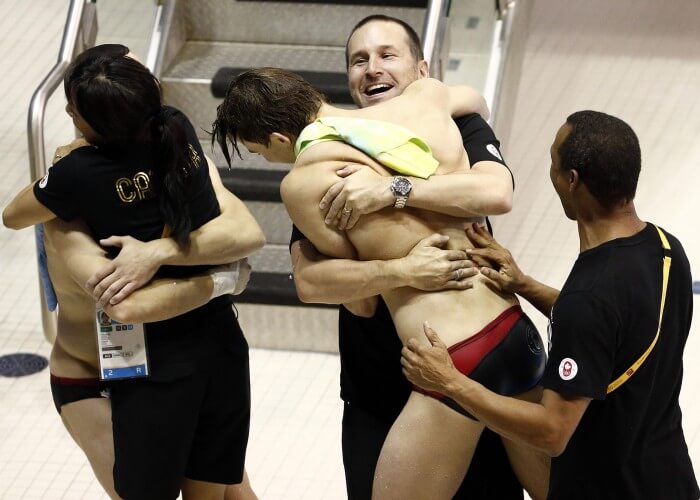5 New Year’s Resolutions for Divers to Consider

By Molly Lloyd, Swimming World College Intern
For a fair amount of people, New Year’s resolutions never seem to stick. We tell ourselves that we’re going to make a change, keep at it for a week or two, and then just revert back to our old ways. When it comes to improving in diving, we have to commit ourselves to making consistent changes every day, for every dive, in order to get better – it takes conscious effort to change the ways our bodies move. We’re less than a week into the New Year, and even though we’re more than half way through our college season, it’s never too late to make some changes and make some resolutions we can stick with.
1. Focus on the approach.

Photo Courtesy: Wikimedia Commons
Before you even start worrying about what you’ll be doing in the air, your attention should be focused on what your body is doing on the board. The most important part of the dive is the approach, and if you have your approach consistent and correct – if you’re really driving your knee into the air on your hurdle, keeping your shoulders in position, and are keeping your head neutral on the take off – whatever dive you’re doing will come easily.
2. Commit yourself to trying new dives.
Trying new things can be terrifying. You know you “technically” know how to do this dive you’ve never done before, but that doesn’t mean you’re not freaking out about it. Even though it’s scary, a good goal to have is to commit yourself to every dive you do – even the new, scary ones. This means attempting the dive on the first try. This means just going for it. This also means no more balking and no more bailing. Every time you balk or bail, you’re holding yourself back and psyching yourself out. In my experience, the more often the balk or bail, the more likely it is I’m going to do it again. So this year, try your best to do everything on the first try, even if you do end up scaring yourself.
3. Exude confidence.

Photo Courtesy: Rob Schumacher/USA Today Sports Images
Diving can be an incredibly nerve-racking sport – sometimes you’ll find yourself up on the board, knees knocking, because you’re either anxious or filled with adrenaline. It’s hard to be confident sometimes, when you’re feeling nervous or bad about your dives, but what I’ve found helps me is acting confident, even when I’m not. Fake it ’til you make it – if you pretend to be confident for long enough, you might even be able to trick yourself into thinking you actually are confident.
People can tell when you’re feeling confident, and you’ll be able to tell the difference, too. When you’re confident in what you’re doing, you’ll end up putting more effort into the dive you’re doing. When we’re feeling nervous, we tend to hold back a bit more, which will have a negative impact on our diving in the long run. So when you’re feeling doubtful or nervous, fake it ’til you make it – you might just end up believing it.
4. Set goals.
One of the things that has helped me most in organizing my thoughts and keeping me focused is goal setting, and it’s never too late to start setting goals. Write down the things you want to get accomplished over the rest of the season; this can be certain dives you want to do, a certain score you want to make or a conference or nationals cut. Next, write a list of little things you want to work on each day; this could be anything from keeping your head neutral on your takeoff, to doing line-ups every day at the beginning of practice, to making sure your toes are pointed throughout the entire dive. Writing a list of goals helps what you want to achieve become a tangible item you can hold. Setting goals will help guide you through the season, so you know exactly what you want to get out of diving.
5. Have fun!
The most important thing about diving is that you’re enjoying yourself. Sure, you can dive well and score well and be a overall good diver, but if you’re not having a good time, then what are you really doing? This year, if you haven’t already, you should work on enjoying yourself while diving. Enjoy the company of your teammates during practice and don’t be afraid to goof-off (occasionally). Try your best to do well during meets, but also try not to take yourself too seriously. Make mistakes and have bad days, but keep coming back every day because you genuinely love the sport.



